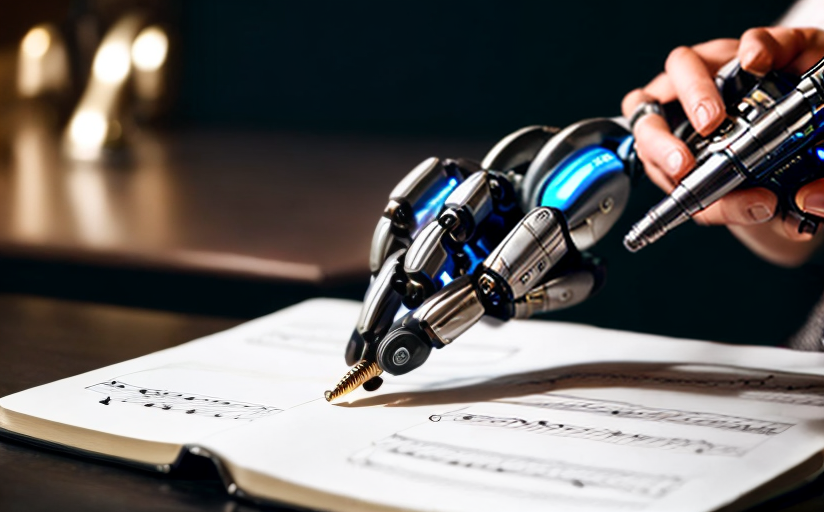The Impact of Artificial Intelligence on Music Composition and Entertainment
In recent years, Artificial Intelligence (AI) has become an influential player in various sectors including healthcare, finance, and now, its footprint has expanded into the world of music and entertainment. With technology becoming increasingly entrenched in our daily lives, it's no surprise that the impact of AI on music is significant, fundamentally transforming the way music is produced, distributed, and consumed.
Revolutionizing Music Production, Distribution, and Consumption
AI has streamlined music production by simplifying the process of music creation. One key area where AI has demonstrated stellar progress is the generation of music from image interpretation, which is done through deep learning algorithms.
The distribution of music has also been profusely impacted by AI. Platforms like Spotify and Apple Music use AI algorithms to understand listener preferences and create personalized recommendations.
In terms of consumption, algorithms are used in streaming platforms to customize and enhance user experiences. These platforms analyze music based on the user's listening history, creating playlists tailored to their tastes.
Modifying Music Composition
AI has also transformed the art of music composition. Software tools like AIVA and Amper Music allow artists to create new melodies and musical concepts using AI, significantly expanding their creative potential. These tools create music based on predefined styles or genres, offering artists a fresh perspective on composition, as well as tremendous time savings.
Positive and Negative Repercussions
The advancement of AI in music brings both benefits and challenges. On the positive side, it can democratize music production, making it more accessible to those without a traditional music background. However, it also raises concerns about the dilution of creativity, as artists could potentially rely too heavily on AI, leading to homogenized music.
Speculative Forecasts
As the AI technology evolves, it will continue to refine its understanding of music genre, rhythm, and personal preferences, possibly leading to more personalized and immersive music experiences. On the other side, experts warn of potential issues such as copyright infringement and the diminishing value of human creativity in the music production process.
AI-driven Music Software
Programs such as Amper Music, Jukin and Flow Machines are subtly changing the way music is being composed. These AI-powered tools can develop entire compositions within minutes, presenting an interesting avenue for artists to explore their creativity and produce tracks in record time.
AI's Implications on Copyright Issues
One of the main challenges brought up by the usage of AI in the music industry is around copyright issues. As AI-generated compositions become mainstream, drawing clear lines of copyright ownership may become increasingly tough. Therefore, substantial legal discussions and relevant legislation will need to evolve to address these new scenarios.
Artificial Intelligence has undeniably reshaped the music industry and continues to do so at an accelerated pace. As we move forward, it will be interesting to see how these changes impact the industry as a whole, the artists generating the music, and the listeners who consume it.





















Comments
Leave a Comment